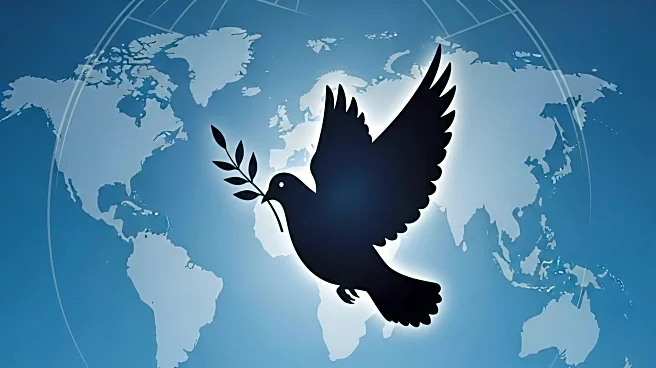What's Happening?
Kazakhstan has called for immediate global action to address the ongoing nuclear arms race, emphasizing the urgent need to reduce nuclear risks and prevent a new arms race. The call to action is rooted in Kazakhstan's historical experience with nuclear testing and the associated dangers. The country highlights the critical issue of maintaining thousands of nuclear warheads on high alert, which poses significant risks due to the potential for false alarms, technical glitches, or misjudgments, particularly with the involvement of artificial intelligence. The article references the New Strategic Arms Reduction Treaty (START II), signed by then-U.S. President Barack Obama and then-Russian President Dmitry Medvedev in 2010, which is set to expire soon without a successor in sight.
Why It's Important?
The call from Kazakhstan underscores the broader implications of nuclear arms control on global security and stability. The potential for accidental or intentional nuclear conflict remains a significant concern, especially with the current geopolitical tensions. The expiration of key treaties like START II without a replacement could lead to an unchecked arms race, increasing the likelihood of nuclear proliferation. This situation could have profound impacts on international relations, defense policies, and global peace efforts. Countries with nuclear capabilities, as well as those advocating for disarmament, stand to be significantly affected by these developments.
What's Next?
The expiration of the START II treaty presents a critical juncture for international diplomacy. Major stakeholders, including nuclear-armed nations and international organizations, may need to engage in renewed negotiations to establish a successor treaty or alternative measures to ensure continued arms control. The global community may also see increased advocacy from non-nuclear states and civil society groups pushing for disarmament and risk reduction strategies. The outcome of these efforts could shape the future of nuclear policy and international security frameworks.
Beyond the Headlines
The ethical and humanitarian dimensions of nuclear arms control are significant, as the potential consequences of nuclear conflict extend beyond immediate geopolitical concerns. The legacy of nuclear testing and its impact on human health and the environment continue to influence public opinion and policy debates. Long-term shifts in international norms regarding nuclear weapons could emerge from sustained advocacy and diplomatic efforts, potentially leading to a more comprehensive approach to global disarmament.









